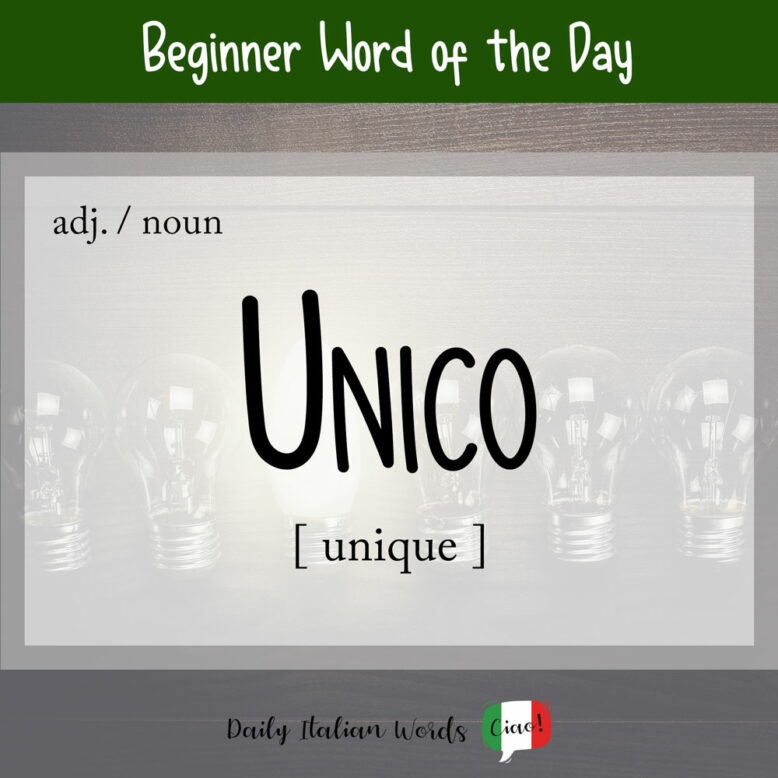If you want to talk about something that is one of a kind, you can use the word unique in English, which translates to unico (masculine, plural: unici) and unica (feminine, plural: uniche) in Italian.

La voce di Freddy Mercury era unica. Nessun altro cantava come lui.
The voice of Freddy Mercury was unique. Nobody else sang like him.
A well-known expression is più unico che raro which literally translates as more unique than rare. It suggests that a person or thing is exceptional or special.
Matteo è più unico che raro, sono veramente contento che faccia parte della squadra.
Matteo is exceptional, I’m really happy that he is part of the team.
Unico can translate as unparalleled or unmatched, and in this sense, it is often used to describe the skills of a person.
Mio zio è unico in cucina. Prepara sempre dei piatti eccezionali, anche con poche cose.
My uncle is unmatched in the kitchen. He always prepares exceptional meals, even with just a few things.
Unico in Italian can be used in more contexts than the English equivalent. Whereas unique is confined to its basic definition, unico can also mean one and only.
Mauro è figlio unico.
Mauro is an only child.
Ho scelto di pagare in un’unica soluzione.
I decided to pay in one instalment.
Unico and unica can become nouns and translate as only one in English.
Questo pezzo è l’unico che mi è rimasto in negozio.
This sample is the only one left in the store.
Sei l’unica che la pensa in questo modo.
You’re the only one who thinks that way.
When used as a feminine noun, unica can refer to something that is implied but not explicitly stated. For example, it can mean the only chance. But instead of saying l’unica possibilità in its entirety, you can exclude possibilità (chance) altogether.
L’unica adesso è rimanere qui e aspettare.
The only chance now is to stay here and wait.
Curiously, l’unico modo, which means the only way, doesn’t work in the same way. You have to say unico as well as modo.
L’unico modo adesso è rimanere qui e aspettare.
The only way now is to stay here and wait.
Finally, we have the adverb unicamente. It too can mean only, but also means exclusively.
Mathieu Gasquet was born and raised in Turin in the north of Italy to an Italian mother and a French father. He provides the audio pronunciation for Daily Italian Words.


